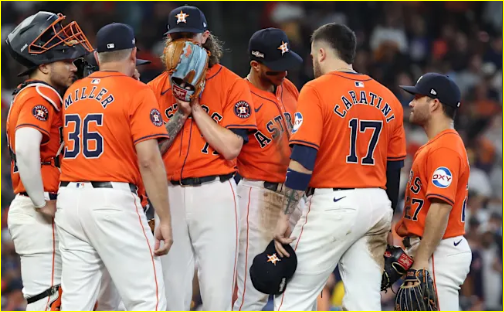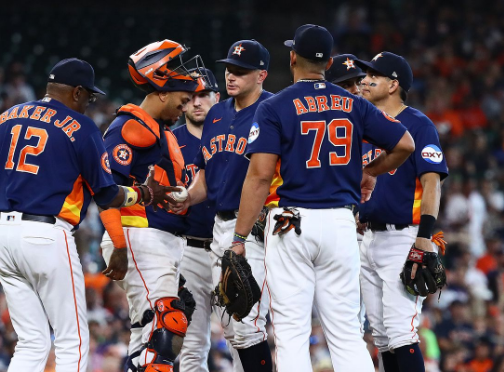It sounds like a sharp and playful critique of how MLB leadership, particularly Commissioner Rob Manfred, may prioritize financial gains over the purity and fairness of the game during the playoffs. The expanded playoff format, the underlying business motivations, and the strategic attempts to bring about high-profile matchups (like a potential Yankees-Dodgers World Series featuring stars such as Aaron Judge and Shohei Ohtani) are key targets here.

The mention of “specialized protection zones” is a funny nod to potential favoritism towards marquee players like Judge and Ohtani, humorously hinting at the lengths MLB might go to protect its stars and maximize revenue.
While this is clearly written in a satirical tone, it touches on some real debates in baseball: expanding the playoffs, the role of big-market teams, and the delicate balance between growing the sport’s profitability and preserving its integrity. Fans of smaller-market teams might particularly enjoy this perspective as they often feel overshadowed by the MLB’s emphasis on powerhouse franchises.
As the postseason begins, are there any particular teams or matchups you’re hoping to see?
This continuation ramps up the satire, further exploring the idea that MLB leadership might subtly manipulate playoff outcomes to favor big-market teams or marquee players like Ohtani and Judge. The fictional “specialized protection zones” come off as a wink at possible biases favoring star players to ensure they make deep playoff runs, all for the sake of maximizing revenue.
The critique of the AL Central’s weak competition (thanks to the struggling White Sox) and the absurdity of a potential Mets/Braves/D-backs playoff doubleheader shows a comedic take on the randomness and chaos that sometimes emerges in baseball. The jab at Manfred’s handling of various teams, especially Atlanta and Arizona, adds to the sense that this piece isn’t just poking fun at the commissioner but also touching on real fan grievances—whether it’s awkward scheduling or playoff matchups that don’t always live up to their billing.
The satirical dread around a potential Phillies surge and the vague allusion to the “other West division champion” (presumably the Houston Astros) being treated differently plays on lingering animosities surrounding teams like the Astros, who have a controversial reputation post-2017. The insinuation that even they would get “specialized protection zones” in certain matchups humorously highlights how far MLB might go to steer the narrative they want.
It’s a fun, tongue-in-cheek look at the drama and intrigue of postseason baseball from a fan’s perspective. Do you think these storylines will shape how this year’s playoffs unfold?
This final segment wraps up the satirical critique with a bang, pushing the absurdity of the imagined rule changes to hilarious extremes. The rules targeting player #27 (possibly referencing a star like Mike Trout, as he’s often #27) are ridiculously over-the-top, with penalties for things as mundane as a foul ball or damaging stadium property by hitting a home run. The exaggeration of punishments—ejections, suspensions, and even execution by firing squad—heightens the humor, mocking the idea that MLB might go to extreme lengths to control playoff outcomes and keep certain teams or players in check.
The joke that “Project 202” is an ongoing effort to manipulate the 2025 season, with Shohei Ohtani pitching being a crucial part of the future plan, further amplifies the ridiculousness of MLB’s potential meddling. The sudden exit of the reporter adds a perfect punchline, signaling that even the fictional journalist has reached their limit with the madness.
Ultimately, this piece delivers a clever and satirical take on the MLB’s playoff dynamics, media influences, and the sometimes frustrating narrative focus on big-market teams and star players. It plays on the fears of fans who feel the league’s decision-making might prioritize profits and TV ratings over fairness and the integrity of the game.
Do you think MLB fans are as wary of these types of biases, or is this all in good fun?



